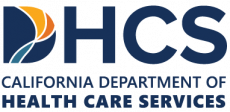August is National Wellness Month, a reminder that health is more than the absence of illness – it’s the active pursuit of a balanced, fulfilling life. Prioritizing personal wellness can feel like an afterthought for physicians who’ve dedicated their careers to improving others’ health. But your well-being is not optional – it is essential for delivering the highest-quality care to your patients.
The Dimensions of Wellness
A balanced lifestyle encompasses eight dimensions of wellness. If you neglect one of these, the others will suffer. You can enhance your health and happiness by understanding and nurturing every facet.
- Emotional: Emotionally well people understand, manage, and express their feelings constructively. They are positive and resilient, with high self-esteem.
- Physical: Physical health largely depends on the cumulative choices you make about nutrition, fitness, sleep, stress management, and substance use.
- Occupational: A fulfilling job or career goes beyond a paycheck. It relates to factors like work-life balance, healthy relationships with colleagues, and ways you manage workplace stress.
- Intellectual: An intellectually healthy person enjoys learning new things, improving their skills, and sharing creative pursuits with others.
- Financial: This wellness dimension involves learning to budget your expenses, invest where you can, and save for the future.
- Social: This dimension is about developing supportive, mutually beneficial friendships and partnerships.
- Environmental: This realm encourages us to live in harmony with nature by protecting our shared environment.
- Spiritual: Spiritually healthy people follow a set of values that help them find meaning and purpose. Spirituality is not necessarily synonymous with religion – it can be any practice that brings you inner peace.
Prioritizing Your Health During National Wellness Month
Physicians work under intense pressure – long hours, life-or-death decisions, and emotionally taxing situations. Neglecting wellness can lead to burnout, compassion fatigue, and even physical health problems. Worse yet, if you are not functioning at your best, it’s a disservice to your patients.
Self-care isn’t a luxury – it’s an ethical imperative for those entrusted with making sound choices, practicing empathy, and upholding high standards of care.
How to Be Healthier With a Busy Schedule
Even in a demanding profession, there are practical ways to incorporate wellness into your daily life.
- Prioritize sleep: Adequate rest improves your cognitive function, mood, and decision-making skills.
- Stay active: Short bouts of exercise can boost your energy and reduce stress. Try taking the stairs instead of the elevator or doing jumping jacks or lunges between shifts.
- Eat mindfully: Plan healthy snacks and meals to avoid relying on vending machines or fast food.
- Set boundaries: Carve out private time for hobbies, relationships, and rest and protect those hours.
- Practice mindfulness: Techniques like deep breathing, meditation, or yoga can lower your stress levels.
- Seek support: Don’t hesitate to reach out to peers, therapists, or professional wellness programs.
Don’t Neglect Your Well-Being
The Practice specializes in helping physicians restore balance, resilience, and well-being. Our programs offer:
- Confidential, physician-focused care
- Evidence-based strategies to address burnout, anxiety, and other wellness barriers
- Holistic treatment plans to improve multiple facets of your health
- Tools to help you thrive personally and professionally
This National Wellness Month, put your health back on your to-do list. Remember, investing in your well-being also means honoring your commitment to your patients. Contact us today to learn more about our program for healing healers.


